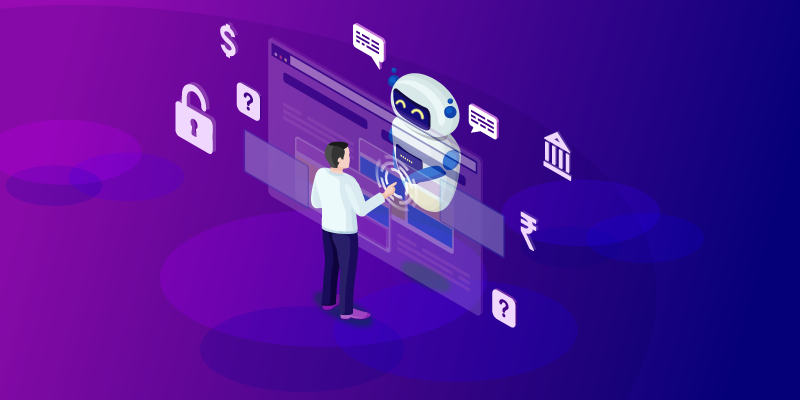
Artificial Intelligence (AI) may seem like a complex concept, but in simplified manner, its application involves using advanced analytics and intelligent logic-based commands to automate decision making and actions. From self-driving cars to personal voice assistants and personalised movie recommendations on Netflix, AI is gradually becoming an integral part of our daily lives.
However, its potential goes beyond just convenience–it can revolutionise how we approach dispute resolution, especially in the realm of loan disputes, even before they escalate to litigation. At the pre-litigation stage, AI tools can play a pivotal role in various aspects of dispute resolution, providing both efficiency and insight to legal professionals.
Let’s delve into how AI can transform this stage of the process.
Investigation and evidence analysis
One of the significant challenges in loan disputes is sorting through vast amounts of data to pinpoint relevant information. AI algorithms excel at this task as they are capable of swiftly analysing financial records, transaction histories, and communication logs. By automating evidence collection and analysis, AI not only speeds up the process, but also offers valuable insights to legal professionals.
Document review and due diligence
AI-powered tools can efficiently review and categorise documents, contracts, and agreements, identifying discrepancies or non-compliance with legal requirements. This streamlines due diligence tasks such as verifying borrower information or assessing collateral, ultimately saving time and reducing errors.
Predictive analytics
AI models can predict case outcomes based on historical data and patterns, empowering legal professionals to make informed decisions during pre-litigation negotiations. Understanding the likelihood of success or potential risks allows parties to strategise effectively, potentially leading to swifter resolutions.
Access to judicial precedents
AI systems can index and retrieve relevant case law, judgments, and legal precedents, aiding lawyers in building stronger arguments. By understanding how similar disputes were resolved in the past, legal professionals can navigate their cases more effectively.
Access to justice
AI tools can assess the strength of claims more effectively, potentially reducing court backlogs and expediting the resolution of routine matters such as family disputes or petty crimes. This increased access to justice is one of the most positive impacts of AI on dispute resolution.
Leveraging AI in pre-litigation loan disputes
Artificial Intelligence has been advancing notably across diverse fields, one of which is handling loan disputes before litigation. Here are some ways in which AI can benefit this process.
Disclosure management: Modern commercial litigation has undergone a paradigm shift with the advent of electronic disclosure, where relevant documents are exchanged digitally. This transition has been aided by AI-based tools like predictive coding, streamlining the management of vast electronic document volumes. Leveraging machine learning algorithms, predictive coding identifies potentially relevant documents by analysing keywords, phrases, and metadata, starting with a human-identified “seed set” of example documents.
Legal research databases: Conducting thorough legal research is paramount in crafting compelling litigation arguments and providing sound counsel to clients. AI-powered legal databases revolutionise this process by leveraging sophisticated natural language processing algorithms. These algorithms, such as term frequency / inverse document frequency (TF-IDF), ensure search results are highly relevant, optimising efficiency in navigating extensive volumes of reported judgments and complex case law.
AI-generated legal documents: In the legal landscape, AI tools have emerged as valuable assets, particularly for handling relatively straightforward claims. While intricate cases still demand the expertise of human lawyers, AI-powered bot solutions excel in generating essential documents like pleadings and witness statements. This technology offers a streamlined approach, especially beneficial in consumer claims, enhancing efficiency throughout the legal process.
Faster automated document drafting and arguments: AI technologies have revolutionised legal drafting by swiftly generating initial drafts, citing pertinent case law, and anticipating counterarguments. Human oversight remains essential for finalising documents, but AI expedites the process considerably. Particularly in relatively straightforward claims like certain consumer disputes, AI tools prove invaluable, aiding in drafting various legal documents and ensuring coherence and efficiency throughout the process.
Risk assessment and fraud detection: Through the integration of Artificial Intelligence, machine learning (ML), and natural language processing (NLP), financial institutions enhance their ability to identify borrowing trends and mitigate the risk of default. Loan officers leverage data-driven insights to fortify decision-making processes, thus bolstering bank fraud detection mechanisms and ensuring more secure lending practices.
Risks and ethical considerations: Despite its benefits, the adoption of AI in dispute resolution poses certain risks and ethical considerations. These include the perpetuation of bias in AI models trained on existing datasets, the potential manipulation of AI tools by private parties to favor their claims, and the lack of transparency in automated decisions, hindering the ability of parties and judges to challenge them.
Conclusion
The role of artificial intelligence in pre-litigation loan disputes is transformative, offering efficiency, accuracy, and access to justice. While risks and ethical considerations need to be mitigated, the benefits of leveraging AI in dispute resolution outweigh the challenges. As AI continues to evolve, the legal sector must embrace its potential and adapt to the changing landscape. By harnessing the benefits of AI, dispute practitioners can gain a competitive edge, ultimately serving their clients better and advancing the efficiency of the legal process.
(Mayank Khera is the Co-founder and Chief Operating Officer (COO) of Credgenics)
Edited by Megha Reddy
(Disclaimer: The views and opinions expressed in this article are those of the author and do not necessarily reflect the views of YourStory.)










